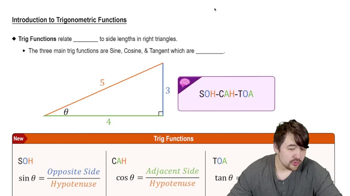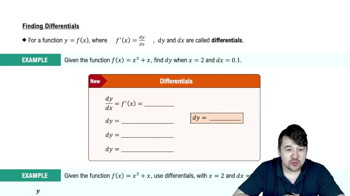109-112 {Use of Tech} Calculating limits The following limits are the derivatives of a composite function g at a point a.
b. Use the Chain Rule to find each limit. Verify your answer by using a calculator.
 Verified step by step guidance
Verified step by step guidance Verified video answer for a similar problem:
Verified video answer for a similar problem:



 5:02m
5:02mMaster Intro to the Chain Rule with a bite sized video explanation from Patrick
Start learning